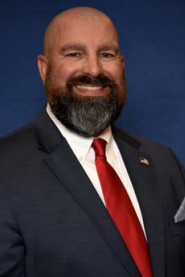Veterans Law Project: An Update from Equal Justice Works Fellow Scott A. Sloss
For seven years, Thomson Reuters has funded fellowships through Equal Justice Works, a nonprofit organization that brings together an extensive network of law students, lawyers, legal services organizations, and supporters to promote public service and equal justice.
Scott A. Sloss began his two-year fellowship – the Veterans Law Project – in 2021 to work with those who served by providing direct representation and access to legal services for veterans and their families. Last year, he talked with Legal Current about his fellowship, and today we’re following up with him for an update on his efforts.
Below is a recap of the conversation.
Legal Current: When we last spoke, you were a few months into your fellowship and directly representing more than 20 clients. How many clients do you have now, and what are the top challenges you face in serving their needs?
Sloss: I am directly representing over 50 clients at the present time in civil, criminal defense, estate planning, and family law matters. Over the past year I have directly represented or provided legal guidance to over 200 veterans through the Veterans Law Project.

Scott A. Sloss
The biggest challenge is time management. It is not the time needed to provide the best advocacy for my clients, but the logistical time management of having to be in multiple courts at the same time or often within hours of each other.
LC: You’ve been working to develop a fully funded legal clinic to serve veterans in Tuscaloosa County and West Alabama. How are these efforts going? What have been the most rewarding aspects of your work?
Sloss: Unfortunately, I do not feel we are going to have a fully funded legal clinic specifically for veterans. However, I am extremely confident that we have been able to raise awareness of veteran issues in the community. Over the past year, through the many opportunities that Thomson Reuters provided me to share my story, I have been able to establish relationships locally and nationally. These relationships have proven to me that we can provide the veterans of Tuscaloosa County with access to justice through various other legal services and nonprofit organizations beyond this fellowship.
The most rewarding aspect of my work are the times when I see the look of pure gratitude and relief on the faces of the veterans I am able to assist. There are many times – with the nature of this work – it can take an emotional toll on you. Those little moments of connection and celebration make all the other times worth it.
LC: Veterans face many legal issues, including evictions, foreclosures, consumer debt, discharge upgrades, and VA disability appeals claims. What are the main barriers veterans face in getting legal assistance on these issues?
Sloss: In my opinion, the number-one issue facing veterans and other low-income clients, is they almost always exceed the income threshold for legal services. I believe our federal and state representatives and senators should be working together to raise the income threshold restriction of federally funded programs from 125% to 300% of the federal poverty level.
LC: How is the Veterans Law Project helping veterans address this issue?
Sloss: The Veterans Law Project overcomes this barrier by not imposing an income threshold for qualification of our services. The issue stemming from this lack-of-income restriction is the fact that I am a one-man show, and I cannot accept every application for services.
LC: What advice can you share for lawyers who may be interested in supporting the veteran community but don’t know where to start?
Sloss: Contact your local Veteran Affairs Office, Veteran Service Organizations, or State Veterans Affairs Office and ask where they see a need. The one need I see across all communities is for basic estate planning documents. Hosting a local Wills for Heroes would be a great project for any community.